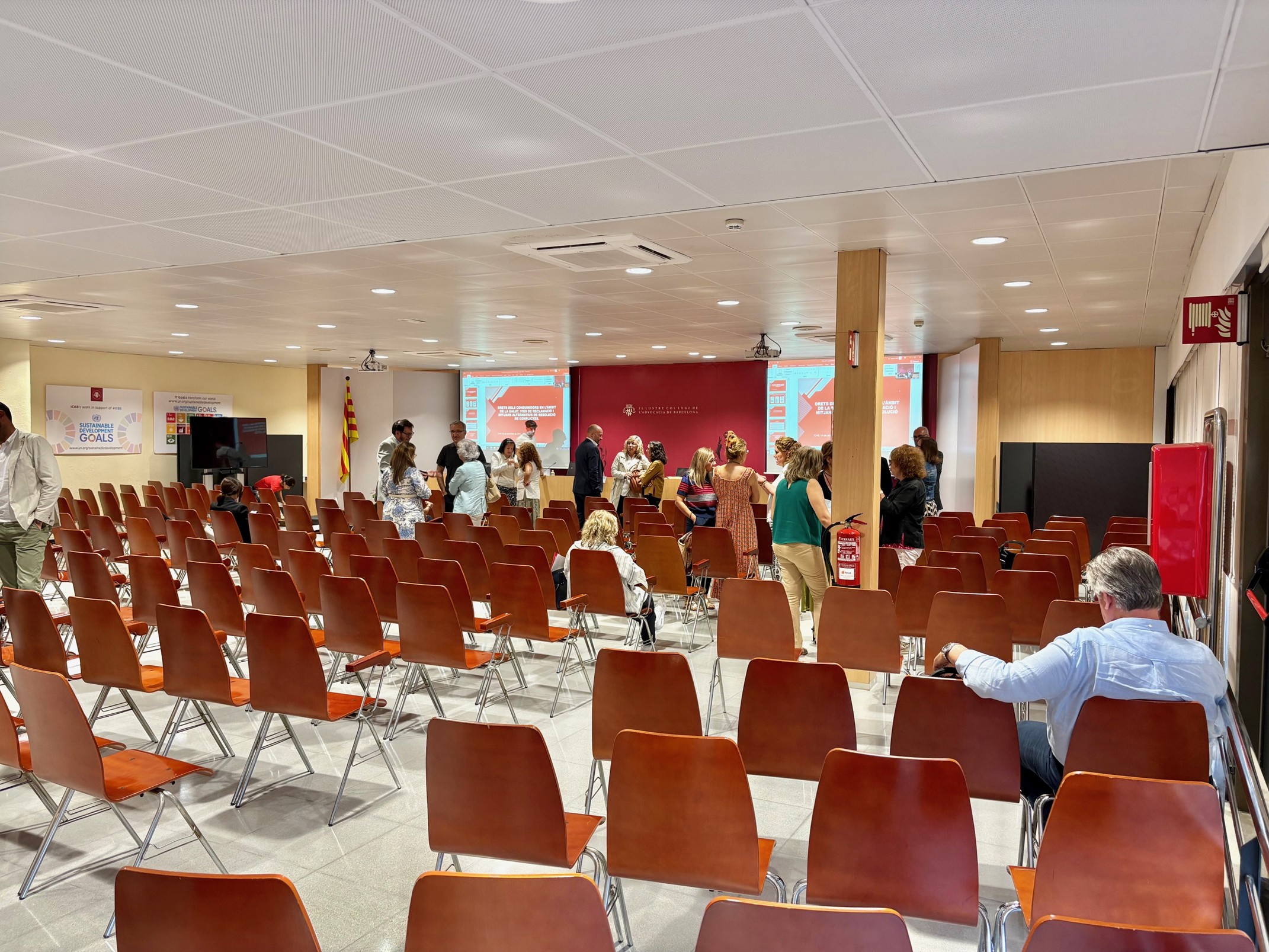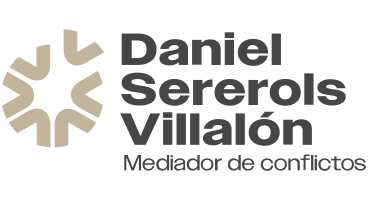
21 Sep Thanks to ICAB for the professional update sessions
Thanks to ICAB for the professional update sessions (September 2025)
I would like to express my sincere gratitude to the Illustrious Bar Association of Barcelona (ICAB), to Dean Cristina Vallejo, and to all the members of the different committees and sections who made possible two sessions in which I had the pleasure to participate. They have been extremely useful for lawyers and mediators who aim to stay up to date, learn, and adapt to new realities.
Highlighted sessions
- “Consumer rights in the field of health. Complaint channels and Alternative Dispute Resolution Methods”
- Date: September 16, 2025
- Organisation: Consumer Law Section and Health Law Section of ICAB
- Opening: Cristina Vallejo (Dean of ICAB), Silvia Pardo (President of the Consumer Law Section), Mireia Aznar (President of the Health Law Section) and Isidor García (Director of the Catalan Consumer Agency).
- Panel 1: Marga Garcia Canela (ICS), Ignasi Pidevall Borrell (lawyer, Secretary of the Health Law Section ICAB) and Francesc Xavier Sánchez Moragas (President of the Municipal Consumer Arbitration Board of Mataró). Moderated by Mireia Aznar.
- Panel 2: Noemí Luis Navarro (Relyens Spain), Luis López Pardo (lawyer, Vice President of the Consumer Law Section ICAB) and Núria Gómez Marichalar (lawyer, legal advisor of the College of Podiatrists of Catalonia, Vice President of the Health Law Section). Moderated by Carles Garcia Roqueta (Secretary of ICAB, mediator, arbitrator and lawyer).
- Closing: Elena Medina (lawyer and member of the Young Lawyers’ Group), with the presentation of the Emotional Health Commission.
One of the most interesting moments was the intervention of Ms. Marga Garcia Canela, who, when explaining the functioning of the ICS complaints, claims and reporting system, ironically stated that nowadays “citizens shoot everywhere with a click”. She also reminded that the ICS is the largest company in Catalonia, with about 55,000 employees.
In terms of consumer matters, it is relevant to note that public ADR mechanisms are free of charge, unlike private ones, which may involve a cost for the user. It should also be noted that consumer mediation is practically controlled by the Catalan Consumer Agency.
In this field, there are mainly four types of entities involved:
- Public consumer services (such as arbitration boards or the Catalan Consumer Agency).
- Consumer associations, which may act as authorised entities in consumer matters.
- Professional associations, also authorised in consumer matters.
- Accredited private entities for alternative resolution of consumer disputes (ADR).
However, this is a very complex field and often does not provide real solutions. Personally, I believe there is too much intervention by the administration and that more opportunities should be given to the private sector to resolve consumer disputes. In this regard, the statement of Ignasi Pidevall Borrell strongly resonates: “Everything is very muddy.” The lack of coordination between entities creates confusion among citizens.
In the same critical vein, Carles Garcia Roqueta pointed out that “we lack a mediation culture”, highlighting the need to continue promoting and spreading ADR mechanisms. And Luis López Pardo, with irony, referred to aspects of corporatism within the legal profession: “firefighters don’t step on each other’s hoses.”
In the strictly healthcare field, according to several speakers, the most commonly used ADR mechanisms are direct negotiation and the binding offer. However, the courts often return these binding offers due to lack of guarantees of good faith, depending on the criteria of the clerks of the Court Administration (LAJs).
It is important to understand that:
- Good faith and willingness to negotiate must be clearly and reliably demonstrated.
- The binding offer is confidential: it is known only to the parties and, in case of failure, it is the LAJ who reviews it later to assess whether there was truly a serious intention to negotiate.
- It is essential to properly document ADR processes, leaving sufficient record of the procedure but without going into the substance of the matter, to avoid it being later used against the parties in a potential lawsuit.
- ADR mechanisms interrupt prescription and limitation periods, which is crucial to protect the rights of the parties while they attempt to reach an agreement.
As for mediation, it was highlighted that it is not commonly used in the healthcare sector. As Núria Gómez Marichalar stated, mediation is increasingly applied to family and personal disputes, but its use in healthcare remains very limited. The same speaker added that she does not recommend carrying out ADR in a remote (telematic) format, since the lack of in-person interaction may hinder the quality and trust in the process.
It was also emphasised that when there are personal injuries or damages, there can be no extrajudicial resolution.
In addition, explicit reference was made to the Seventh Additional Provision of Organic Law 1/2025, which states:
“For the purposes of fulfilling the requirement of admissibility established in this Law, the public alternative dispute resolution mechanisms regulated in Law 7/2017, of November 2, which incorporates into Spanish law Directive 2013/11/EU of the European Parliament and of the Council of 21 May 2013 on alternative dispute resolution for consumer disputes, shall be considered as such.”
This means that these public consumer ADR mechanisms satisfy the requirement of admissibility established by Organic Law 1/2025.
Finally, a recurring idea was emphasised: arbitration in Spain does not work. By contrast, the example of Mexico was mentioned, where arbitration is widely used as an alternative to a judicial system considered corrupt. And this, paradoxically, speaks in favour of our judicial system: it may have problems and backlogs, but it is not corrupt.
- “ADR. Mediation with a gender perspective in couple disputes”
- Date: September 18, 2025
- Organisation: Women Lawyers’ Commission of ICAB
- Presentation and moderation: Olga Arderiu Ripoll (President of the Women Lawyers’ Commission)
- Lecture: Mon Tur (collaborative lawyer and mediator)
During her intervention, Mon Tur shared very relevant reflections: “Formal justice is patriarchal” and “the adversarial logic is more masculine than feminine.”
She also cited an article by Dr. Isabel Viola Demestre —Gender violence and mediation: a brief approach from the perspective of the capacity to decide and the particularities of this process, published in Estudis de dret català: llibre homenatge a Antoni Mirambell i Abancó (2022)— in which it is suggested that, in certain cases, mediation could “incapacitate” women. A debatable viewpoint that, precisely for that reason, opens discussion and enriches professional reflection.
Personal reflections
In the session dedicated to mediation with a gender perspective, I had the opportunity to participate and express a concern that, as a mediator, directly affects me: I observe with concern the recent attacks against ADR mechanisms, a kind of “harassment and takedown” that I do not know whether they respond to political interests or to certain lobbies opposed to these peaceful methods of dispute resolution.
I also wish to share another reflection: I regret that in sessions on gender perspective, the presence of men is still very limited. I believe it is essential that this debate and this inclusive approach not remain confined to only part of society, but be collectively embraced.
Conclusion
These two sessions, in which I participated, allowed us to delve into topics of great current importance:
- The complaint channels and the promotion of ADR in the healthcare sector.
- The impact of Organic Law 1/2025 on health-related claims.
- The need to incorporate a gender perspective in the mediation of couple disputes.
Thanks again to everyone: to Dean Cristina Vallejo, to Carles Garcia Roqueta, to Silvia Pardo, to Olga Arderiu, and to all the speakers and organisers. With their effort and dedication, lawyers and mediators can grow professionally, stay updated, and better serve citizens.
